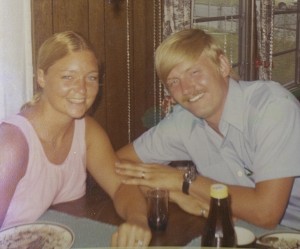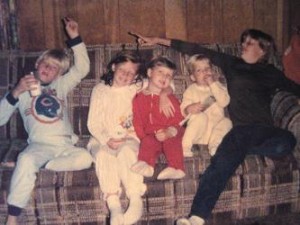After writing last night’s post entitled “Love Letters,” today a dim bell rang in my head reminding me I’d already used that title. Sure enough, the day after Valentine’s Day, there it was: “Love Letters.” Was it a senior moment or a poor memory? Probably both.
While looking again at February 15’s blog, though, my eye landed on a comment at the end by “Anonymous”. He or she wrote: “I am envious of the love your husband had for you and the love you had for your husband. That unconditional love has eluded me.”
I got a pang of sadness for that commenter and for Nate. The sad truth is that although Nate definitely loved me unconditionally, I didn’t always love him back that way. I felt so secure in his devotion to me I often took his love and him for granted. I’ve written this truth “between the lines” of my blog but haven’t said it outright. Let me set the record straight, Anonymous.
It’s been my nature to expect the best from people, particularly our children, and then when they deliver, to expect more. Years ago Nate and I attended a parenting conference during which a powerful statement from the speaker impacted me: “Expect the best of your children and they’ll live up to it.”
That plan can be taken too far, however, if parental expectations seem never to be satisfied. The second problem is treating a spouse in this way. I erred in both categories.
But it’s interesting that once we received Nate’s cancer diagnosis, my expectations ceased and my wifely faults suddenly stood out like lighted billboards on a dark highway. I remember walking on the beach with my sister just after we learned of the cancer, telling her, “I realize I haven’t been the best wife, but I am going to be, from this moment on.”
While Nate was sick, it was my greatest joy to love him unconditionally. But it took knowledge of a fatal illness for me to stop “expecting more.”
Years ago, Nate and I became friends with a couple we met through his work. We had much in common with them until it surfaced that the husband was having an affair. As soon as his wife found out, she divorced him. The affair fizzled, and sadly, a short time after that, the man had a sudden heart attack and died.
Nate and I often talked about whether or not our two friends might have tried to restore their marriage, even after the torture of the affair, had they known he was going to die so soon. My guess is their answer would have been, “Yes”.
Our marriage was good, but it could have been better, had I reciprocated with unconditional love like Nate’s. What could be more gratifying than a husband and wife trying to outdo each other in loving the other person more? Since it was easy to love Nate like this after he became sick, why couldn’t I have done it when he was well?
If he was sitting at my elbow as I typed this, he’d say, “What are you talking about? You were a great wife.” But that’s just it. Those would be the words of unconditional love.
As I pray daily for my blog readers (which includes you, Anonymous), I pray for strong marriages, that husbands and wives will have eyes to see each other as if their lives already had end-dates on the calendar. If we were willing to love unconditionally despite the sacrifices required, God would respond with blessing beyond our wildest dreams.
The end of Anonymous’ comment on February 15 was, “I’m so happy for you that you’ve had this very precious gift.”
Well said… a precious gift, given freely, without expecting anything in return. The Lord operates that way too, giving and giving more. If we decide to give back, he gives again, piling blessing on blessing. And this is our example for marriage.
“All of you should be of one mind. Sympathize with each other. Be tenderhearted, and keep a humble attitude. Don’t repay evil for evil. Don’t retaliate with insults when people insult you. Instead, pay them back with a blessing. That is what God has called you to do, and he will bless you for it.” (1 Peter 3:8-9)




